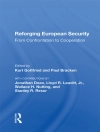In Making Immigrants in Modern Argentina, Julia Albarracín argues that modern Argentina’s selection of immigrants lies at the intersection of state decision-making processes and various economic, cultural, and international factors. Immediately after independence, Argentina designed a national project for the selection of Western European immigrants in order to build an economically viable society, but also welcomed many local Latin Americans, as well as Jewish and Middle Eastern immigrants. Today, Argentines are quick to blame Latin American immigrants for crime, drug violence, and an increase in the number of people living in shantytowns. Albarracín discusses how the current Macri administration, possibly emulating the Trump administration’s immigration policies, has rolled back some of the rights awarded to immigrants by law in 2003 through an executive order issued in 2017. Albarracín explains the roles of the executive and legislative branches in enacting new policies and determines the weight of numerous factors throughout this process. Additionally, Albarracín puts Argentine immigration policies into a comparative perspective and creates space for new ways to examine countries other than those typically discussed.
Incorporating a vast amount of research spanning 150 years of immigration policies, five decades of media coverage of immigration, surveys with congresspersons, and interviews with key policy makers, Albarracín goes beyond the causes and consequences of immigration to assess the factors shaping policy decisions both in the past and in modern Argentina. This book will appeal to scholars, students, and general readers with an interest in immigration, democratization, race, history, culture, nationalism, Latin American studies, and representation of minorities in the media.
Giới thiệu về tác giả
Julia Albarracín is a professor of political science at Western Illinois University. She is the author of At the Core and in the Margins: Incorporation of Mexican Immigrants in Two Rural Midwestern Communities.












